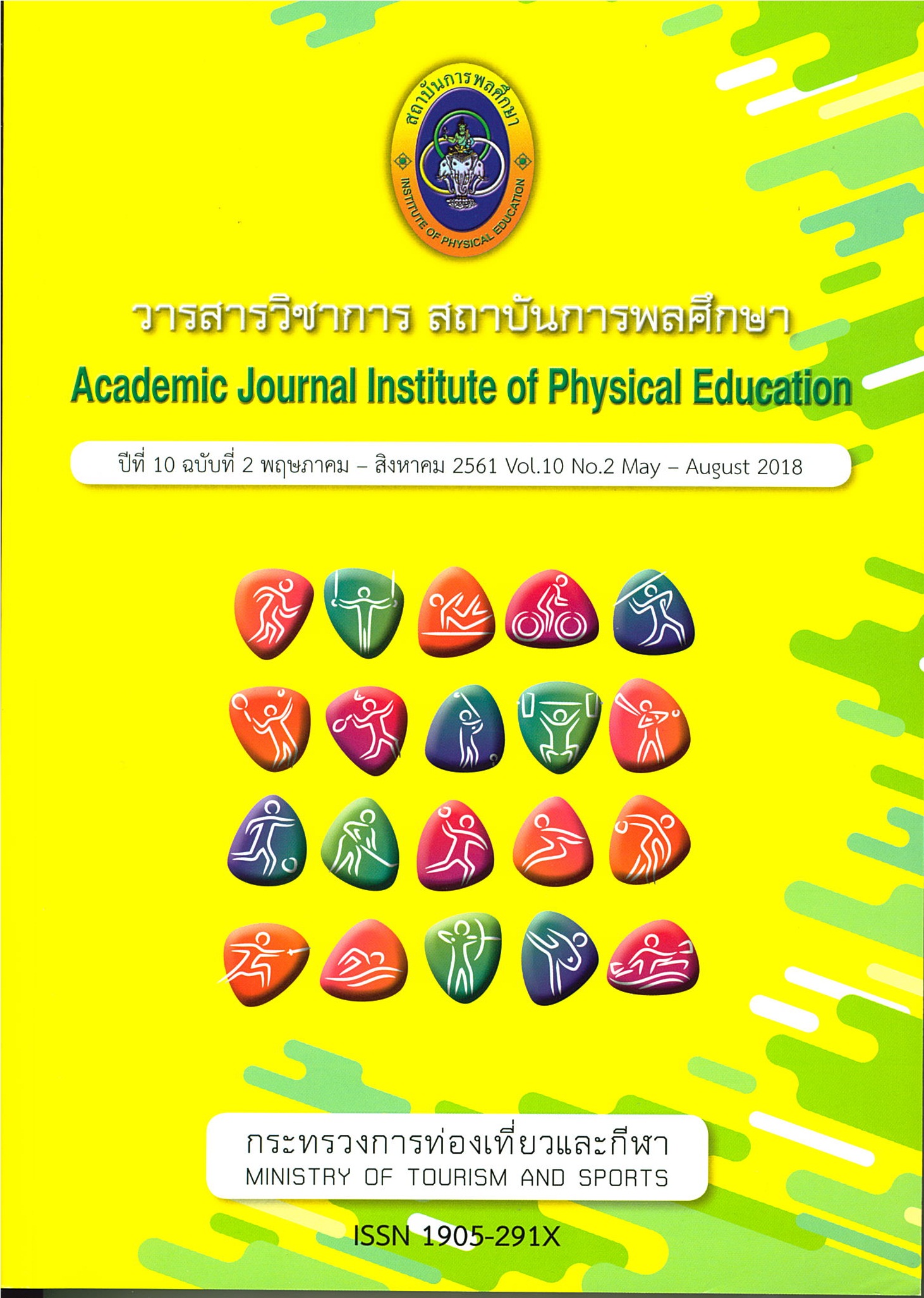Development of Ethical Leadership Indicators for School Principals Under Bangkok Metropolitan Administration
Main Article Content
Abstract
The purpose of this quantitative research were to study the factors and develop ethical leadership indicators of school principals under Bangkok Metropolitan Administration and to validate the measurement model of ethical leadership behavior indicator school principals under Bangkok Metropolitan Administration. The samples consisted of 500 teachers in school under Bangkok Metropolitan Administration by using a multi-stage random sampling technique. The instruments uses for collecting the data was a questionnaire, They were validated in terms of content validity by the qualified panels. The data were analyzed by arithmetic mean, Standard deviation, and confirmatory factor analysis by SPSS for Windows and LISREL. The summary of the findings were as follows:
1. Ethical leadership for school principals under Bangkok Metropolitan Administration consisted of 5 factors: they were 1) Trust 2) Fairness 3) Respect 4) Responsibility and 5) Honestly.
2. Ethical leadership for school principals under Bangkok Metropolitan Administration consisted of 5 factors with 16 indicators they were: 1) three indicators of trust; 1.1) integrity, 1.2) loyalty, and 1.3) self-respect 2) three indicators of fairness; 2.1) procedure of decision making, 2.2) fair of decision making, and 2.3) right of decision making 3) three indicators of respect; 3.1) be honor, 3.2) be polite, and 3.3) accept others 4) three indicators of responsibility; 4.1) accountability, 4.2) self-control, and 4.3) attempt to the excellent 5) four indicators of honestly; 5.1) openness of information, 5.2) transparency, 5.3) sincere and 5.4) no cheating person.
3. The result of the structural model of ethical leadership for school principals under Bangkok Metropolitan Administration fitted with empirical data.(factor loading. 81 to .92, Cronbach’s .86 to .94 and AVE .68 to .80)
Article Details
The published article is a copyright of the Academic Journal of Thailand National Sports University. The passage appeared in each article in this academic journal is a perspective of each author which is not related to the journal. Each author is required to be responsible for all components of his/her own article. If there are any mistakes, each author must be responsible for those mistakes on his/her own.
References
ชฎิล นิ่มนวล. (2553).รูปแบบความสัมพันธ์เชิงโครงสร้างคุณธรรมของผู้บริหารสถานศึกษากับความภักดีต่อองค์การของผู้รับบริการ. วิทยานิพนธ์ปรัชญาดุษฎีบัณฑิต,สาขาวิชาการบริหารการศึกษา, บัณฑิตวิทยาลัย, มหาวิทยาลัยศิลปากร.
ทองใบ สุดชารี. (2551). ภาวะผู้นำ: กลไกลแห่งการขับเคลื่อนองค์กรสู่การเรียนรู้. อุบลราชธานี: คณะวิทยาการจัดการ มหาวิทยาลัยอุบลราชธานี.
ประชุม โพธิกุล. (2550). ความกล้าทางจริยธรรมของผู้นำทางการศึกษา. กรุงเทพฯ: สถาบันพัฒนาผู้บริหารการศึกษา กระทรวงศึกษาธิการ.
วิเชียร วิทยอุดม (2550). ภาวะผู้นำ (พิมพ์ครั้งที่ 3). กรุงเทพฯ: โรงพิมพ์ธีระฟิล์มและไซเท็กซ์.
วิโรจน์ สารัตนะ. (2553). ผู้บริหารโรงเรียน: สามมิติการพัฒนาวิชาชีพสู่ความเป็นผู้บริหารที่มีประสิทธิผล (พิมพ์ครั้งที่ 7). ขอนแก่น: คลังนานาวิทยา.
สำนักงานรับรองมาตรฐานและประเมินคุณภาพการศึกษา. (2545). หลักเกณฑ์และวิธีการประเมินคุณภาพภายนอกของสถานศึกษาขั้นพื้นฐาน. กรุงเทพฯ: สำนักงานรับรองมาตรฐานและประเมินคุณภาพการศึกษา.
สุเทพ ปาลสาร. (2555).การพัฒนาตัวบ่งชี้ภาวะผู้นำเชิงจริยธรรมของผู้บริหารสถานศึกษา สังกัดสำนักงานคณะกรรมการการศึกษาขั้นพื้นฐาน. วิทยานิพนธ์ปรัชญาดุษฎีบัณฑิต,สาขาวิชาการบริหารการศึกษา, บัณฑิตวิทยาลัย, มหาวิทยาลัยขอนแก่น.
อรอุมา รุ่งเรืองวณิชกุล. (2556). การพัฒนารูปแบบการเสริมสร้างสมรรถนะครูนักวิจัยด้วยการบูรณาการกระบวนการเรียนรู้สำหรับข้าราชการครู สังกัดสำนักงานเขตพื้นที่การศึกษามัธยมศึกษา เขต 2. ปริญญานิพนธ์การศึกษาดุษฎีบัณฑิต, สาขาวิชาการศึกษาผู้ใหญ่, บัณฑิตวิทยาลัย, มหาวิทยาลัยศรีนครินทรวิโรฒ.
Josephson, M. (2009). Ethical leadership outcomes student leader learning outcomes (SLLO) project. Retrieved from http://josephsoninstitute,org/MED/MED-2sixpillars.html
Manage, A. J. (2009). Ethics in school administration. Retrieved from http://www.academicjourmals.org/AJBM/PDF/Pdf2009/Apk/kocabas%20and%20Karak%C3%B6se.pdf
Neubert, M. J., Carlson, D. S., Kacmar, K. M., Roberts, J. A., & Chonko, L. B. (2009). The virtuous influence of ethical leadership behavior: Evidence from the field. Retrieved from http://www.apa.org/pubs/librarians/guides/psycinfo-orgbehav.pdf


